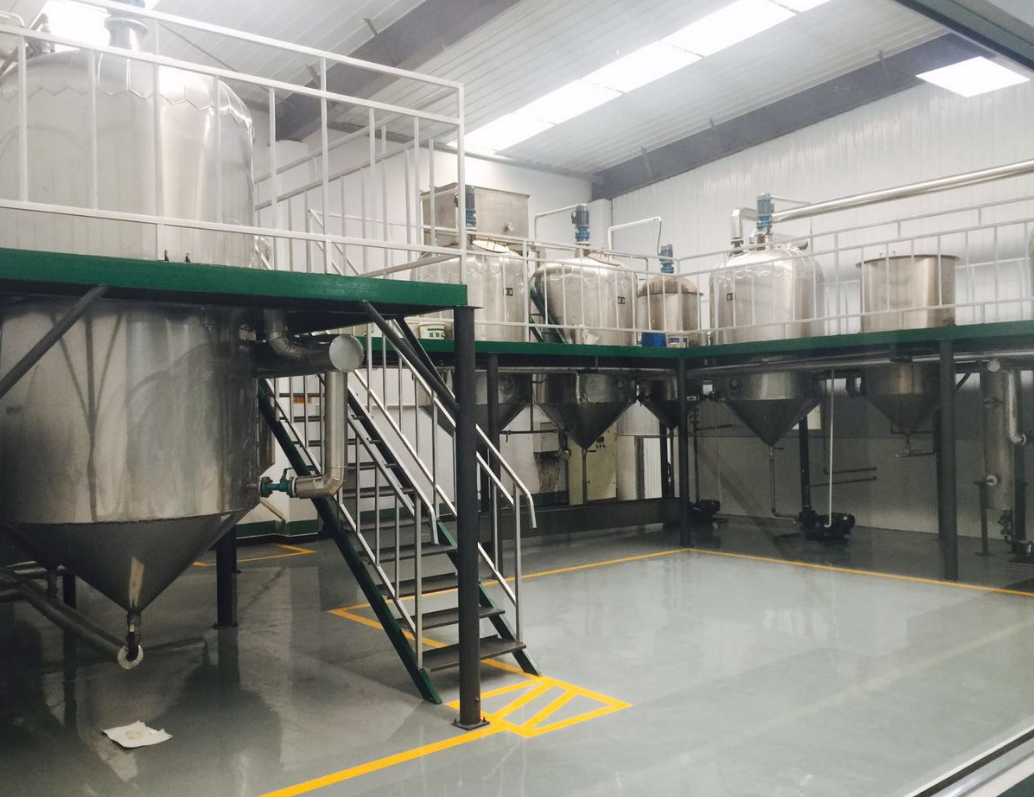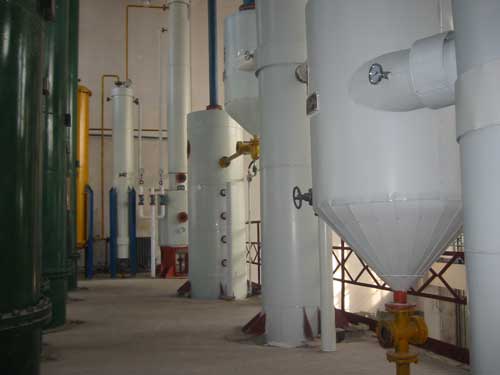In the production process of freshly pressed oil, the hygiene of the production environment cannot be guaranteed, and the impurities in the oil cannot be completely removed due to the limited process during production. The presence of these impurities in the oil will cause the oil to be oxidized due to the effect of air and other factors during storage. And further decomposition produces the phenomenon of peculiar smell. Mainly due to the automatic oxidation of unsaturated fatty acids in oils and fats to produce peroxides, which are then degraded into a complex mixture of volatile aldehydes, ketones and acids. Fat exposed to the air, through the action of light, heat, humidity and air, or through the action of microorganisms, can produce a unique odorous gas, this effect is called rancidity. After rancidity, the density of the fat decreases, the iodine value decreases, and the acid value increases. Rancid fats are not suitable for consumption. The factors that cause oil rancidity are as follows:

1. Moisture
The moisture content in the oil is an important factor that causes the rancidity and deterioration of the oil. Under the production conditions of the oil industry, due to the excessive moisture of the raw materials, imperfect equipment or poor operation technology, etc., the produced oil often has too much water content. The moisture in the oil will strengthen the hydrolysis of the oil, increase the free fatty acid, and increase the activity of the enzyme, which is conducive to the growth and breeding of microorganisms. Therefore, excessive moisture content in the oil will easily promote the hydrolysis of the oil and rancidity.
2. Impurities
The crude oil will contain various impurities such as phospholipids, protein, wax, cake powder, seed coat, and other oily solids that are insoluble in oil. These impurities are all hydrophilic substances, which can absorb water, are conducive to the growth and reproduction of microorganisms, can accelerate the rancidity of oils, and are very unfavorable to the safe storage of oils.
3. Air
Oxygen in the air is the main factor that causes oxidative deterioration (auto-oxidation) of grease. When oil contacts the air, the unsaturated fatty acids will be oxidized by the oxygen in the air, which will increase the peroxide value and free fatty acids, and continue to decompose into low-grade short-carbon chain aldehydes and ketones, thereby causing it to produce a special stimulus. The smell loses its edible value.
4. Temperature
The increase of oil temperature can accelerate its oxidation reaction, enhance the activity of lipase, promote the growth and breeding of microorganisms, and secrete protease and lipase, so that the unsaturated fatty acid in the oil can accelerate the oxidation decomposition and rancidity. The higher the temperature, the longer the high temperature time, the faster the rancidity of the oil will deteriorate (within the range of 60℃-100℃; generally every 10℃ increase, the rate of oil rancidity can be doubled), and lowering the temperature can stop or delay the rancidity. The rancidity process of oil improves storage stability and ensures safe storage.
5. Daylight
The ultraviolet light in sunlight has high energy, which is beneficial to the activation of oxygen and can promote the oxidation and rancidity of oils. When grease is exposed to sunlight, it can often form a small amount of ozone under the irradiation of ultraviolet light. When the unsaturated fat in the oil reacts with ozone, it can form ozonide at its double bond. Under the influence of moisture, ozonide will be further decomposed into aldehydes and ketones, causing the oil to produce a hala taste and lose its edible value. At the same time, under sunlight, the vitamin E contained in the oil is destroyed, and the anti-oxidant function is weakened, which will also accelerate the rate of oxidation and rancidity of the oil.

How does refining equipment solve the problem of oil rancidity?
Freshly squeezed oil can be refined by refining equipment to remove impurities such as moisture, free fatty acids, phospholipids, and proteins in the oil to reduce the rate of oil rancidity. Oil refining equipment includes five processes, namely degumming, deacidification, dehydration, decolorization, and deodorization. Depending on the oil and the grade of refining, a dewaxing process will be added after the deodorization process. Refining equipment can refine and remove impurities such as moisture, phospholipids, free fatty acids, pigments, and odorous substances in oils, improving the quality and storage time of oils, ensuring the safety of oils, and obtaining finished edible oils that meet the quality standards of edible oils. .
Even refined oil will suffer rancidity due to storage environment and other problems. Therefore, in daily life, you should buy fresh-date oil and avoid storing the oil in stoves and other heat sources and places in the sun. After opening the oil Eat it as soon as possible, and store the extra in a cool or low-temperature place, so as to prevent the fat from deteriorating due to storage environmental problems, which will affect the safety of eating.
Copyright © Henan Zhongxing Grain And Oil Machinery Co.,Ltd. All Rights Reserved. Powered by MetInfo